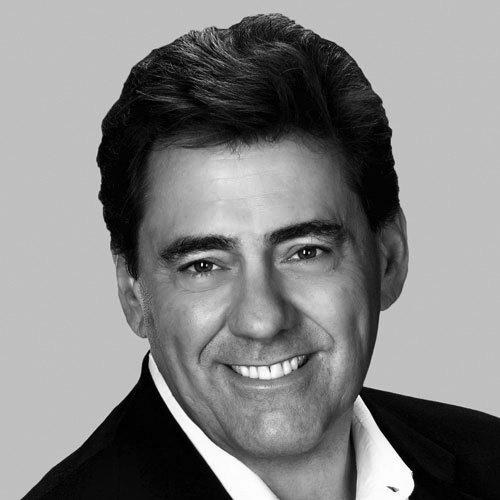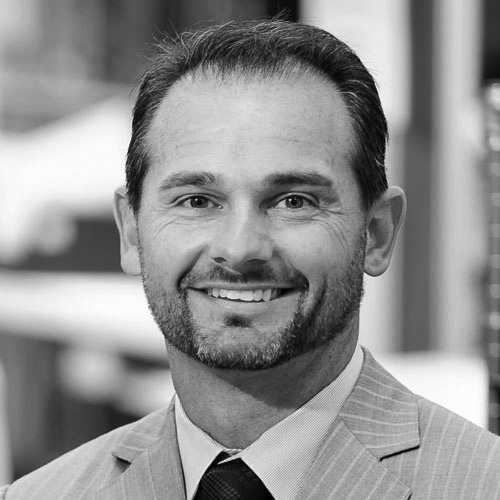How did your upbringing influence your approach to business?
Barry Sloane: I was blessed with having a loving household. My dad was an entrepreneur who demonstrated a work ethic of seven days a week of work in season and six days a week out of season in his retail business. He formed a really solid partnership with my stay-at-home mom. My mother ran the house like my dad ran the business. They set an example for a certain style of work ethic, morality, and integrity: that you don’t have to do everything in life, but what you do, do exceptionally well.
What experiences did you have in the business world that led to the formation of Newtek Business Services?
Sloane: I got lucky and had an opportunity to work on Wall Street in 1982 as a mortgage-backed securities salesperson. I got dropped into an industry that was just exploding. Working on Wall Street was a tremendous opportunity to learn the area of finance, and most importantly, to learn how to deal with people.
How did Newtek start?
Sloane: In 1998, two other gentlemen and I created a partnership with the goal to provide business and financial services to the small to medium-sized business demographic in the US, which according to the Small Business Administration represents about 50 percent of non-foreign gross domestic product and about 70 percent of net new-job growth. It’s an underserved market because they’re small, and the Fortune 500 and 1000 companies have a hard time distributing to them.
What was your strategy to serve them in the beginning?
Sloane: We needed a vehicle that would be able to attract capital, and we came across a very unusual form of a state-subsidized tax credit program with an exemption for certified capital companies. We were able to execute on the opportunity, and in the course of five years raised over $240 million from insurance companies. We were able to get a similar amount of tax credits —$240 million—that we were able to pass through to our investor base. Because we were able to pass the tax credits through, we essentially didn’t have to pay a return on the notes that we raised the money from. We basically got interest-free loans from insurance companies. We used the capital that was given to us by the insurance companies to invest in the business model that exists today for Newtek.
Newtek encompasses five different core businesses, ranging from website hosting to payment processing to insurance. Which of these is the most significant for you?
Sloane: The largest, relative to growth and bottom line—but not the biggest revenue contributor—is the lending business. We are a lender to small businesses. We have different programs, and in one of those programs we are the largest non-bank government-guaranteed lender in the US. This year, we’ll lend out about $260 million to smaller businesses in amounts ranging from $50,000 to $5 million.
How do all your business offerings link together?
Sloane: We are in the payment-processing business, including wireless terminals, which are a big trend. We do that with 15,000 customers, both business-to-business and business-to-consumer. In the technology space, we offer cloud computing solutions in our tier one data center. We’re also in the insurance agency business—property and casualty health and management risk. We’re 24-7. A lot of small companies don’t do business with their providers from 8 a.m. to 5 p.m. They do it on their off-hours and on the weekends. We’re here for them.
Do you find a lot of your customers utilize more than one of the products or services that you offer?
Sloane: Most of our clients have at least two products, but we think the holy grail is selling five products to a client. Wells Fargo is one of the biggest companies that does that very well. They weren’t able to do that overnight—it took years and years. With new businesses, you can sell them multiple products because they have no other existing relationships. If a business owner has ADP and First Data and Bank of America, they might come to us for web design, but they’re not going to throw everybody out on day one. Over the course of time, if they become disgruntled with their insurance agent, Wells Fargo, or somebody else, that’s when they come to us, because they know us, and they like what we do for them.
Do you think it’s important for Newtek to remain a midsize business?
Sloane: No. Wal-Mart is where America shops. They had a principle and a philosophy of serving the consumer, the little guy, and really understanding what their needs are. As long as we never lose focus of who our customers are, and what their needs are, our goal is to get larger to be able to provide them with more resources. We have to be honest, we have to be direct, and we have to quickly respond to them by answering their questions and servicing their needs.
Tell us about your business strategies going forward.
Sloane: In November of last year we converted into a business development corporation (BDC) in conjunction with a $31 million capital raise. We reverse split our stock, taking it from a $2–3 stock to a $17–18 stock, which put us in front of a lot of institutions that couldn’t buy single-digit price stocks.
What are the advantages for Newtek by being a BDC?
Sloane: BDCs don’t pay corporate tax. Tax is incurred only at the shareholder level. So that’s reduced our cost of capital and increased the total rate of return to shareholders. When we did our transaction, the stock was at $12.50 in November. It closed on Friday, April 17, at $17.20. So I think the investors are getting a good feel for our business model and understanding it better.
Is it your perception that BDCs are becoming more common as a corporate structure?
Sloane: Given the low interest rate environment, they are becoming more popular investment instruments. BDCs are similar to a real estate investment trust (REIT). The size of the REIT market in the US is about $950 billion, while BDCs are about $50 to $60 billion. So it’s a fraction, but they are growing.
In retrospect, what has been the secret to your success?
Sloane: Part of being an executive is knowing when you’re lucky and knowing when you’re good. I think we all make our own luck in life. Everybody goes through life and gets certain breaks—some of the breaks are bad, some of the breaks are good. It’s really important when you get a good break that you recognize it. And when you get a bad break, you don’t sit there and complain.

